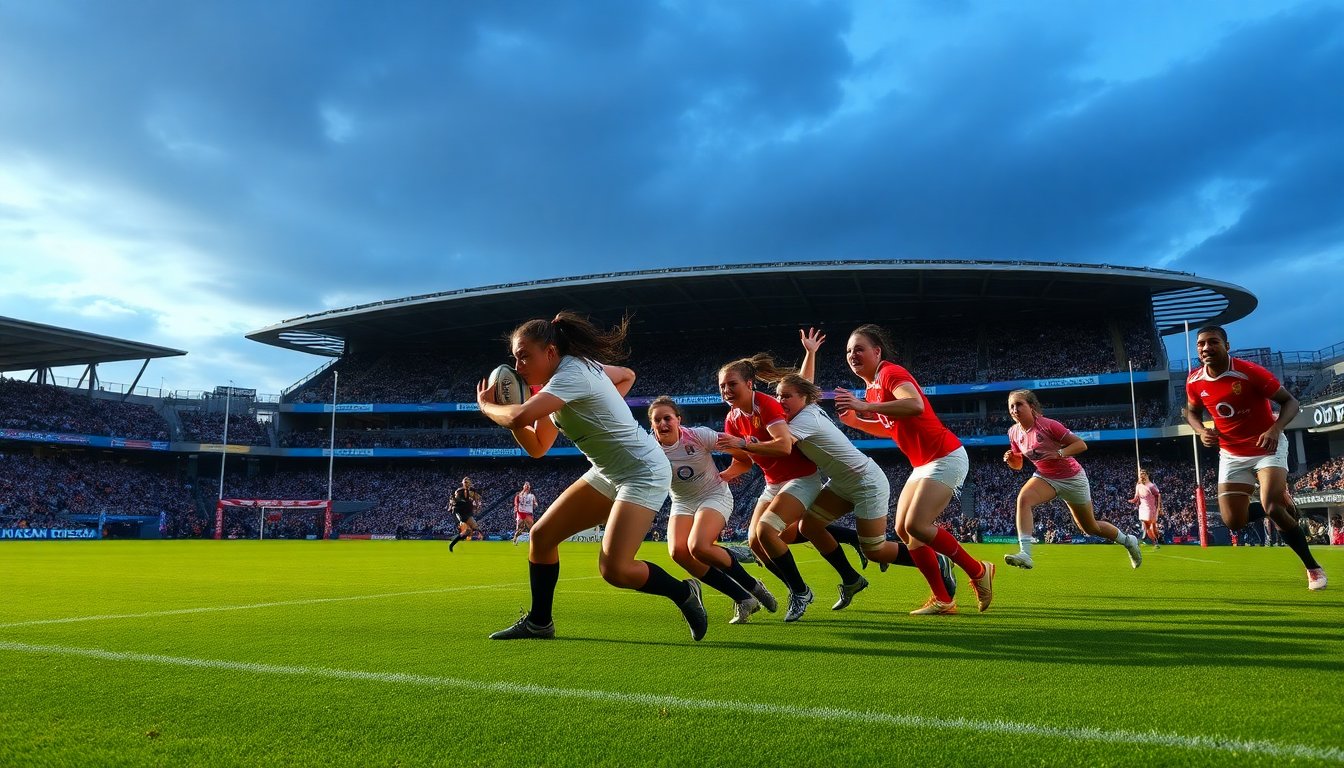Table of Contents
In a thrilling conclusion to the Women’s Rugby World Cup, England defeated Canada 33-13 at Twickenham Stadium in London. This victory not only secures England’s third World Cup title but also underscores their dominance in women’s rugby with an impressive 33-match winning streak throughout the tournament cycle.
The final attracted a record-breaking crowd of 81,885 spectators, who witnessed England’s powerful blend of strength and speed. After facing defeats in the previous two finals and five out of the last six, this win represents a significant redemption for the team, solidifying their status at the pinnacle of women’s rugby.
Match overview: A display of England’s strength
England’s head coach, John Mitchell, commended his team’s performance throughout the tournament, citing their defensive strategy as crucial to their success. “The past certainly dictates the now,” he remarked, underscoring the bond players established with the nation during their championship journey. Their defensive capabilities were exceptional, while their offense, though not at its peak, executed effectively when required.
Conversely, Canada, which advanced to the finals after a remarkable semifinal victory over defending champions New Zealand, sought its first World Cup title. Ranked No. 2 in the world, the Canadian team held high hopes following an unbeaten streak leading up to the final. However, they faced challenges in establishing their rhythm against a strong English defense.
Key moments of the final
The match began with an unexpected turn as Canada took an early lead. Asia Hogan-Rochester scored a try, taking advantage of a two-on-one situation. England quickly countered, with Ellie Kildunne finding the try line just three minutes later, demonstrating her remarkable agility and skill. The momentum shifted further when Amy Cokayne added another try for England, showcasing her ability to be a decisive player, having previously scored three crucial tries in the last World Cup final.
As the first half unfolded, England maintained their dominance. A key interception by Tatyana Heard paved the way for another try from Alex Matthews, extending England’s lead. Canada faced increasing pressure as they struggled to penetrate England’s robust defense. Their attempts were frequently thwarted, highlighted by a decision to kick for points while still trailing, a move that reflected their challenging circumstances.
Canada’s challenge and resilience
Despite an early advantage, Canada struggled to implement their game plan effectively. Canadian captain Alex Tessier expressed her disappointment, stating, “We just started the game a bit flat. We didn’t quite impose our rhythm.” This sentiment was apparent throughout the match as England’s defense consistently thwarted Canada’s attempts to gain momentum.
In the second half, Canada did score again, with Hogan-Rochester crossing the line for her second try. However, a crucial knock-on near England’s try-line hindered their progress, marking a significant turning point in the match. Canadian coach Kevin Rouet emphasized the need to capitalize on scoring opportunities, noting that failing to do so against a team like England could prove costly.
A historic achievement
England secures victory in women’s rugby
As the game drew to a close, England secured their victory with a final try from Matthews, capping off a powerful performance. This triumph signifies not only England’s resurgence in women’s rugby but also marks a historic moment in the sport, inspiring future generations. The resilience and determination exhibited by both teams throughout the tournament highlight the growing popularity and competitiveness of women’s rugby.
With this win, England emerges as a formidable force in the world of rugby. Their third title serves as a testament to their hard work, teamwork, and strategic excellence. The victory at Twickenham will be remembered as a landmark moment in the history of women’s sports.


